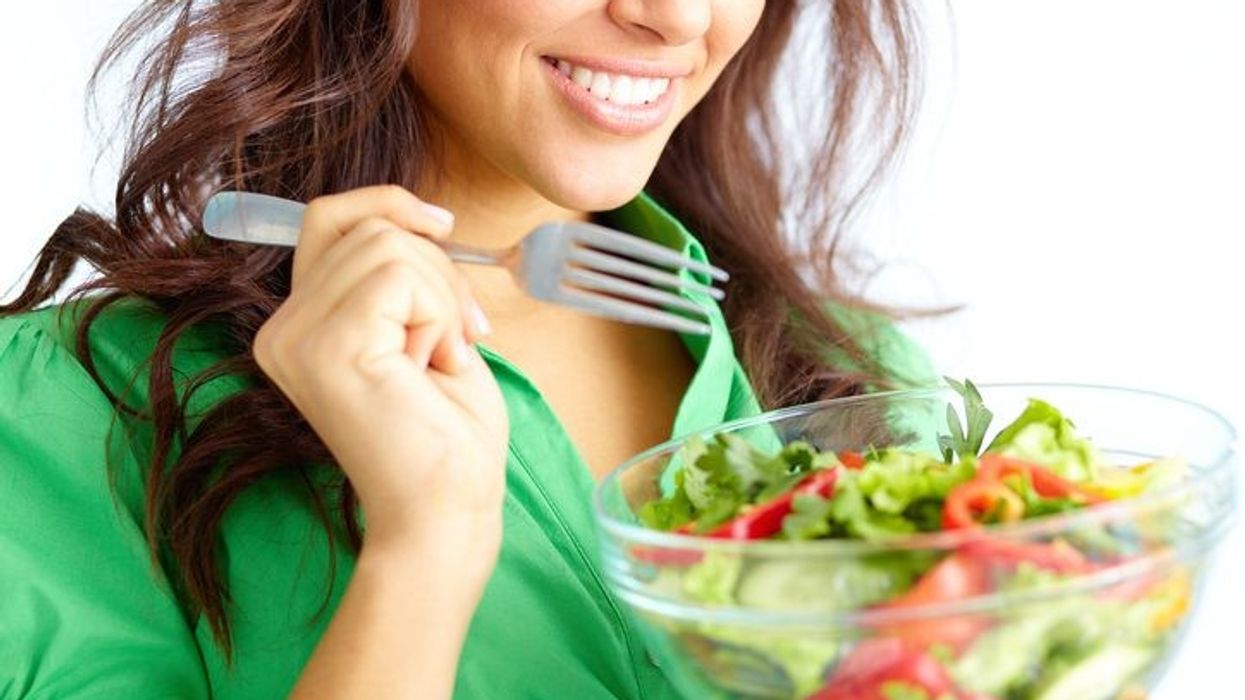Switching to a vegetarian diet for several months has the potential to decrease the susceptibility to heart attacks and strokes, a study shows.
The research involved nearly 2,000 individuals with underlying health conditions such as diabetes or high blood pressure, who abstained from consuming meat for an average period of six months.
This transition yielded considerable enhancements in their cholesterol levels and average blood sugar readings, consequently diminishing the likelihood of experiencing fatal cardiovascular issues, The Times reported.
Throughout the study duration, participants exhibited an average weight loss of 3.4 kg (7lb) and experienced a reduction of approximately 300 calories in daily energy intake.
The investigation, under the guidance of the University of Sydney, consolidated data from 20 previous clinical trials involving subjects adhering to vegetarian or vegan diets.
All participants were previously classified as having a heightened risk of heart attacks and strokes, with a majority using cholesterol-lowering medications such as statins.
On average, the alteration in dietary habits led to a noteworthy decrease of 12.9mg/dL in "bad" LDL cholesterol levels, which holds clinical significance.
Elevated levels of LDL cholesterol contribute to the accumulation of fatty deposits within blood vessels, amplifying the likelihood of heart attack and stroke occurrences.
Furthermore, the exclusion of meat from the diet correlated with reductions in average blood sugar levels, thereby aiding in the preservation of blood vessel health.
The most pronounced impacts of adopting a vegetarian diet manifested among individuals grappling with type 2 diabetes, a condition primarily linked to obesity.
The study's authors underscored that a vegetarian diet can mitigate "multiple key risk factors" and should be complemented by medication to mitigate the risk of heart disease.
They emphasised the diet's efficacy in controlling blood sugar levels among individuals with type 2 diabetes, and its favourable influence on weight management for those at elevated cardiovascular risk or with type 2 diabetes.
The research attributed the heart-healthy benefits of vegetarian and vegan diets to their abundance of vitamins and nutrients capable of curtailing inflammation and safeguarding cardiac well-being.
The study, featured in the JAMA Network Open journal, implies that advocating for a transition to vegetarian diets could potentially motivate millions of UK patients to lower their risk of heart-related ailments, thereby alleviating strain on the NHS's resources.
Heart diseases, including heart attacks and strokes, claim the lives of 160,000 individuals annually, constituting one out of every four deaths.
The UK houses approximately 2.3 million individuals diagnosed with heart disease, with an additional five million affected by diabetes.
Notably, one in ten UK residents identify as either vegan or vegetarian, a trend that's burgeoning in popularity, particularly among younger generations.
Professor Hugh Montgomery, associated with University College London, commented that shifting towards diets rich in vegetables and low in ultra-processed foods is known to be beneficial.
He also highlighted the significant impact of a vegan diet, anticipating that such dietary changes could potentially mitigate the risk of strokes, heart attacks, diabetes, and even certain cancers.




